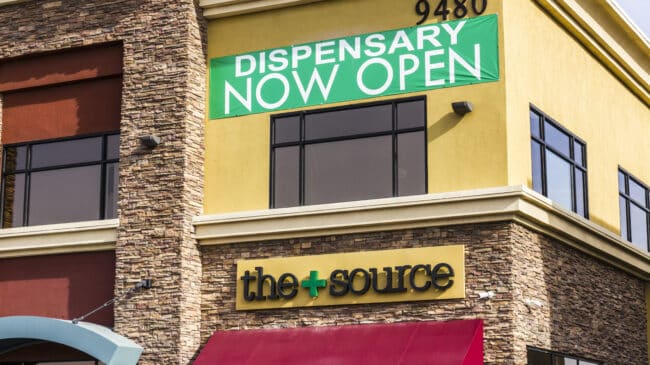Many states that have created a regulated adult-use market for marijuana have been reluctant to change the authorizing statutes following enactment. Colorado, and now Nevada, have recently become leaders by displaying a willingness to improve upon their regulatory structures to respond to market deficiencies.
In 2020, Colorado lawmakers enacted legislation to eliminate residency requirements for investors and employees of legal marijuana businesses that many believe were unconstitutional. Lawmakers also updated the state’s laws to allow legal marijuana businesses to make retail deliveries to customers.
Similarly, during Nevada’s 2021 legislative session, state lawmakers updated legal marijuana policies by voting to create two new license types aimed at fixing unintended problems in the laws that made it difficult for adult tourists to buy and consume legal marijuana products. A “retail cannabis consumption lounge” is a new license type for which an existing licensed cannabis dispensary can apply to authorize the creation of an on-site location for individuals to legally consume marijuana products. Similarly, an “independent cannabis consumption lounge” is a license type that would allow a currently unlicensed applicant to open a standalone consumption lounge. These licensees would be able to purchase single-use marijuana products from licensed retail dispensaries and offer them for resale to customers who intend to consume the products on-site.
These new license types help to address a key shortcoming that has plagued the legal Nevada market. A large share of the state’s retail customers are tourists and convention-goers, who often stay on or near the Las Vegas Strip. Although these adult customers could legally purchase marijuana at the state’s cannabis dispensaries, they had no place to legally consume the products since Nevada’s marijuana law restricted consumption primarily to private residences. Tourists who consumed legal marijuana products in public or in their hotels were subject to civil fines of $500 in addition to any fees that a hotel might assess for remediation of smoking damages. The result has been rampant disobedience of public consumption laws along with arbitrary enforcement of the penalties.
Passage of this legislation represents a rapid and positive turnaround for the Nevada legislature. During its previous regular session in 2019, the state legislature passed a law that expressly forbade the establishment of any cannabis consumption lounges within the state, although it did request state regulators to study the issue. That action was preceded by an effort by the city of Las Vegas to permit consumption lounges. In early 2019, Las Vegas passed an ordinance allowing for the licensing of consumption lounges within city limits after it had requested a legal opinion from the state’s Legislative Counsel Bureau, which determined the city could act on its own to authorize such businesses. When the legislature killed this effort in 2019, Assemblyman Steve Yeager (D-Las Vegas), who would become the primary sponsor of the new law authorizing consumption lounges, told the Las Vegas Review-Journal, that Gov. Steve Sisolak had requested lawmakers to kill the city’s effort for at least two years.
After Gov. Sisolak agreed to sign this year’s law, Yeager told Marijuana Moment:
“Consumption lounges will finally provide a lawful place for both tourists and locals to safely consume cannabis. In addition, lounges will help grow Nevada’s small business economy and create hundreds of jobs. In addition, consumption lounges will further solidify Las Vegas’ status as the entertainment capital of the world as well as THE destination for cannabis tourism.”
Moving to finally allow legal adult consumption for a large share of retail marijuana customers is undoubtedly a step in the right direction for Nevada, although multiple challenges remain. In particular, Nevada remains plagued by arbitrary restrictions on the number of available licenses, which stifles opportunities for entrepreneurship and the development of a highly competitive marijuana market. Nevada has authorized a maximum of 130 legal cannabis dispensaries. This limited number of available licenses has invited corruption as applicants jockeyed to cartelize the industry. The Federal Bureau of Investigation (FBI) is now investigating some of these public corruption charges, where regulators may have accepted bribes and violated their own rules while distorting the marijuana license application process in ways that would benefit certain applicants.
Unfortunately, rather than address these fundamental issues, the state’s new cannabis consumption lounge law doubles down on this approach by restricting the number of independent consumption lounge licenses to 20 statewide, and only existing licensed dispensaries can apply for the new retail cannabis consumption lounge licenses.
It’s great that Nevada has shown a willingness to address some weaknesses within its legal marijuana market, but much work remains to be done.

